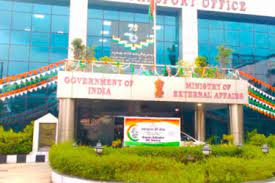Just 26 post graduates in Telangana assembly, 15 of them are SCs, STs
Kenfra Research2023-10-11T17:17:26+05:30Just 26 post graduates in Telangana assembly, 15 of them are SCs, STs
The presence of 26 postgraduates in the Telangana assembly, with 15 of them belonging to Scheduled Castes (SCs) and Scheduled Tribes (STs), is a noteworthy development in Indian politics. This not only reflects the increasing educational qualifications of elected representatives but also indicates progress in the representation of marginalized communities in legislative bodies. Here’s an elaboration of this situation.

Educational Qualifications: The fact that 26 members of the Telangana assembly hold postgraduate degrees highlights a growing trend in Indian politics where elected representatives are increasingly educated. This can potentially contribute to better policy-making and governance, as well as an enhanced understanding of complex issues.
Empowerment of SCs and STs: The presence of 15 SC and ST postgraduates in the assembly is significant for the empowerment of historically marginalized communities. It indicates that individuals from these communities are not only gaining access to higher education but also participating actively in the political process, thereby promoting social inclusion.
Diversity in Decision-Making: The diversity of educational backgrounds and experiences among lawmakers can lead to more comprehensive and informed policy decisions. This diversity reflects the complexity of the state’s demographics, and lawmakers with postgraduate degrees can contribute to addressing the unique challenges faced by various segments of the population.


4. Increased Representation: The presence of SC and ST postgraduates in the assembly can serve as role models for others in their communities, encouraging more individuals to pursue higher education and participate in politics. It can also help in addressing issues related to the welfare and development of these communities.
5. Policy Implications: Elected representatives with postgraduate degrees may bring a stronger focus on issues related to education, social justice, and economic development, which are often priorities for marginalized communities.
6. Challenges and Responsibilities: While educational qualifications are important, elected representatives also carry the responsibility to address the needs and concerns of their constituencies effectively. Their education can equip them to analyze complex issues and propose solutions, but effective representation requires a deep understanding of the specific challenges faced by their constituents.








Leave a Reply